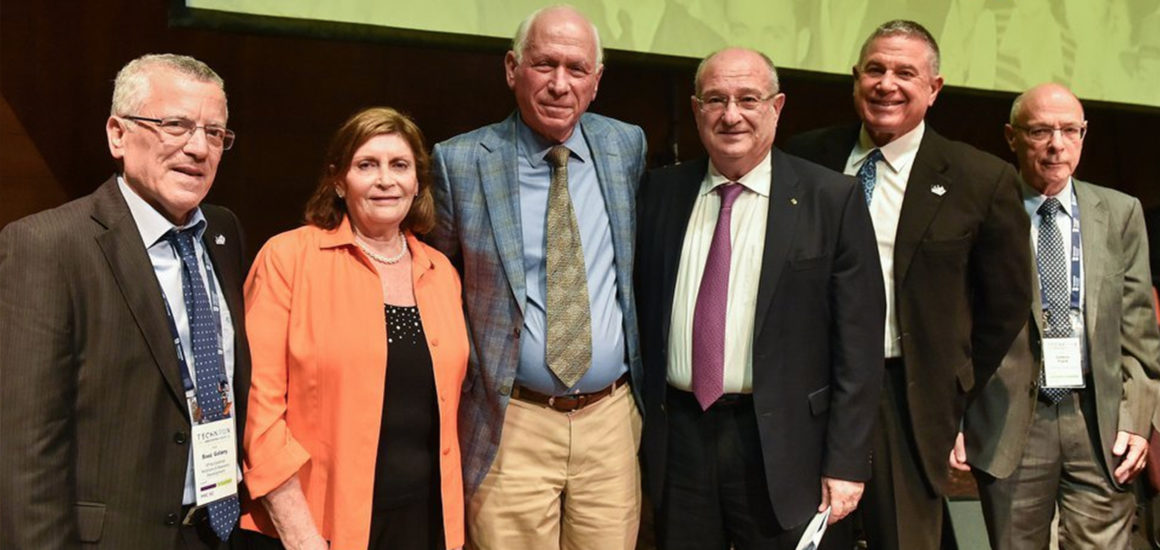In the current era of social entrepreneurship, leading philanthropists and foundations seek to maximize their return on investment for every single gift and grant. In that sense, the contemporary philanthropic sector is not all that different from the private/corporate space. Charitable causes must present a value proposition, not just a feel-good anecdote.
To prove they deserve major philanthropic support, research universities are tasked with showing that they do more for society than simply grant degrees and transmit knowledge (which is critical work in and of itself!). They need to articulate their sense of mission, vision, identity, and purpose — and to produce results, not only for their own institution, but for the greater community. Their laboratory is not the lecture hall, but the world.
With these principles in mind, the Technion kicked off a $1.8 billion, global fundraising campaign this month at the university’s annual Board of Governors meeting in Haifa — the largest and most ambitious fundraising effort ever launched by an Israeli university. Between now and 2024 — the centennial of the Technion’s first-ever class — the campaign will amass funds for crucial areas of need for the Technion such as fellowships, student support, faculty recruitment and retention, research infrastructure, and capital projects.
Despite the historic size and scope of this campaign, the average observer still might not be particularly moved or impressed by the fact that a university is raising money for itself. Fundraising is not the end goal of the campaign. The ultimate objective is to exponentially grow support for world-changing and life-saving innovation.
The Technion confronts bold problems that others dismiss as unsolvable, such as by enabling researchers and alumni to design drugs that target individual cancer cells when cancer is widely deemed incurable, or undertake multi-billion-dollar solar initiatives to create “sun farms” in the Negev desert that will help Israel achieve 10-percent sustainable energy by 2020.
It drives new ideas and scientific advancement across the globe, like developing 360-degree cameras to remotely monitor the safety of construction sites, preventing injuries and deaths.
It stays true to its values, including its staunch commitments to diversity and equality; the Technion has appointed more female deans than any other Israeli university, and recruits a large and thriving population of Arab students and faculty.
And it does this all with less, through delivering $4 of impact for every dollar spent on research by a typical American university.
The combined force of these attributes results in the Technion’s outsized global impact in sectors including the environment, sustainability, and water conservation; health and medicine; artificial intelligence, information, and communication; quantum science, matter, and engineering; and advancing Israel security, leadership, and diversity.
At its heart, the Technion’s campaign is about storytelling — but storytelling with impact, and measurable value. The university’s existing supporters already know that the Technion’s heart and brain work together. But a much wider audience deserves to hear it too – to understand the individual stories of inspiration and achievement within the larger narrative. These are the stories of the incredible people who study, teach, or research at the Technion, combined with the university’s rankings, investments, number of global partnerships, and reach of innovation.
New audiences will learn about Prof. Hossam Haick, the inventor of a “nose” that detects 17 diseases in your breath. He developed the first massive open online course (MOOC) at the Technion, and is the first person in the world to design such a course in two languages: English and Arabic. To date, More than 42,000 people have participated in Haick’s MOOC.
They will discover Alon Shikar, a Technion lecturer who is helping pave the way to Martian expeditions by building a simulation in the Negev to investigate satellite communications, 3D printing capabilities, and solar radiation protection.
And they will be introduced to the Guangdong Technion Israel Institute of Technology, Israel’s first university campus in China, which trains an elite group of scientists and engineers who are working together to create solutions for the pressing environmental challenges faced by China and the world as a whole.
But the Technion and American Technion Society cannot tell these types of stories alone. We need our current supporters to energize this global campaign in any way they can—through social media sharing, working their personal and professional networks, and other forms of spreading the word in their communities.
Let’s work together to tell the Technion’s story — the full range of its value, from inspiring humanitarian tales to robust return on investment — to ensure that the university and the global community it supports will have the resources they need to make the world a better place.



